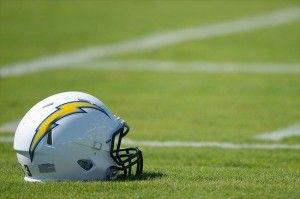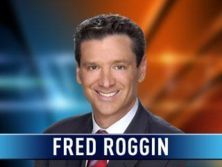L.A. sportscaster: Chargers may not be welcome
 After months of public-relations skirmishing and a few hours of actual discussions between team officials and elected leaders, the future of the San Diego Chargers seems more unsure than ever.
After months of public-relations skirmishing and a few hours of actual discussions between team officials and elected leaders, the future of the San Diego Chargers seems more unsure than ever.
The attorney for the Spanos family, which owns the team — former Clinton administration media aide Mark Fabiani — depicts the city of San Diego as disorganized, unrealistic and “unsophisticated” with its plan to have city voters weigh in via a Dec. 15 special election on whether the city and San Diego County should help the team pay for a new $1.2 billion stadium in Mission Valley. Fabiani points to the unlikelihood that the stadium can readily win necessary environmental approvals and questions the soundness of the funding plan, among several concerns.
City leaders, meanwhile, have gone from quietly seething over what they see as bad-faith negotiating by the team to open displays of disappointment and anger. In a recent radio interview, Mayor Kevin Faulconer accused the team of trying to “run out the clock” by delaying meaningful negotiations while pursuing a stadium project in Carson in southwest Los Angeles County.
Faulconer’s arguments appear to be winning the public-relations war in San Diego County, where social media, letters to the editor and online comments largely reflect the view that the Chargers are going through the motions in their talks with local officials while yearning for a chance to play in the far bigger Los Angeles metro market in a stadium they would jointly own with the Raiders, who want to leave Oakland for L.A.
‘Do you want to be in business with them?’
 If that local perception becomes a national perception, that could hurt the Chargers’ chances of winning support for relocation from three-quarters of the 32 teams, as is required by league rules. The likelihood that this does become conventional wisdom recently got a big boost from an unexpected source: prominent, popular L.A. sportscaster Fred Roggin.
If that local perception becomes a national perception, that could hurt the Chargers’ chances of winning support for relocation from three-quarters of the 32 teams, as is required by league rules. The likelihood that this does become conventional wisdom recently got a big boost from an unexpected source: prominent, popular L.A. sportscaster Fred Roggin.
The longtime KNBC Los Angeles broadcaster made big waves recently by denouncing the Chargers and suggesting that they might not be welcome in Los Angeles if they left San Diego in ugly fashion.
“Given the way they’re conducting business, do you want to be in business with them? If you could pick, would you want to be in business with somebody who is spinning out of control, telling everybody a different story, trying to manipulate?” he said in an interview with 1090 AM San Diego. “We’re not stupid people, and would you want to be in business with someone that you couldn’t trust, that every 35 seconds changes his mind, or you are sitting across talking from him comes up with a reason to walk out of the room? I think that’s going to hurt the Chargers in Los Angeles.”
This isn’t the norm for cities which are being eyed by NFL teams for relocation. In the mid-1990s in Nashville, Tennessee, for example, the rumblings of interest from the Houston Oilers in relocating led to an intense campaign meant to show local enthusiasm, capped by bus-loads of fans showing up at the NFL owners’ meeting where the relocation was approved — with the minimum number of votes.
On Monday, Faulconer had a 45-minute phone conversation with NFL Commissioner Roger Goodell about the stadium situation. Details of the conversation weren’t divulged, but the city’s position — that the Chargers don’t want to give San Diego a chance — has been plain since Fabiani ridiculed the proposal for a Dec. 15 stadium vote earlier this month.
For their part, the Chargers have repeatedly made the case to Goodell and other owners that San Diego has been on notice for more than a decade that the team urgently needs a new stadium if it were to remain competitive in a league where new stadiums with lucrative luxury boxes and first-rate facilities have become common. Fabiani says the idea that San Diego never was given a chance is a historical fiction manufactured by city leaders who can’t get their act together.
Chris Reed
Chris Reed is a regular contributor to Cal Watchdog. Reed is an editorial writer for U-T San Diego. Before joining the U-T in July 2005, he was the opinion-page columns editor and wrote the featured weekly Unspin column for The Orange County Register. Reed was on the national board of the Association of Opinion Page Editors from 2003-2005. From 2000 to 2005, Reed made more than 100 appearances as a featured news analyst on Los Angeles-area National Public Radio affiliate KPCC-FM. From 1990 to 1998, Reed was an editor, metro columnist and film critic at the Inland Valley Daily Bulletin in Ontario. Reed has a political science degree from the University of Hawaii (Hilo campus), where he edited the student newspaper, the Vulcan News, his senior year. He is on Twitter: @chrisreed99.
Related Articles
CEQA chases awesome Google project to Missouri, Texas
April 13, 2013 By Chris Reed A really cool project conceived of and developed by Google in Silicon Valley isn’t
Mother’s Market promotes Prop. 37 GMO labeling
Aug. 21, 2012 By John Seiler When shopping yesterday at the Huntington Beach health-food store Mother’s Market, which I’ve patronized
CalWatchdog Morning Read – September 2
De Leon panel-packing scheme died handily Loretta Sanchez tries to attract the Right ACLU: Charter schools breaking the law How a



